
The Bachelor of Science in Geology is a well-rounded physical science degree that is similar to a traditional geology degree. The UVU Earth Science degree, however, emphasizes aspects of the earth sciences that are applicable to today´s job market. The curriculum is designed to prepare graduates for careers in water resources, engineering geology, cleanup of polluted soil and groundwater, and oil and mineral exploration.
Credits to Completion
120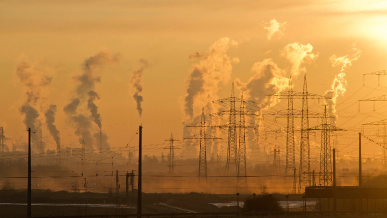
The Bachelor of Science in Environmental Science and Management includes courses in environmental law and policy, toxicology, and natural resources. This curriculum is designed to prepare students for careers helping private industries comply with environmental regulations, or careers working for the government agencies that enforce those regulations.
Credits to Completion
120
The Bachelor of Science in Environmental Studies is an interdisciplinary program that focuses on the complex relationships between humans and the natural world. The program equips students with the skills and perspectives necessary to solving some of the pressing environmental issues by combining a solid foundation of earth system science with social science and humanities courses. The program is flexible so that students can tailor the program to fit their interests and career goals. The program prepares students with a broad introduction to environmental issues so that they can further focus on specific areas and topics of their interest, such as sustainability, planning, policy, communication, business, ecology, geology, environmental science, geography, and more.
Credits to Completion
120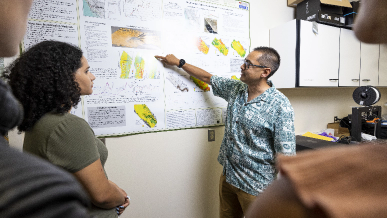
The Bachelor of Science degree in Earth Science Education prepares students to teach earth sciences at the secondary level (grades 7-12). The emphasis on hands-on and field-based learning at UVU gives our Earth Science Education students great personal experience to take to their own classrooms.
Credits to Completion
121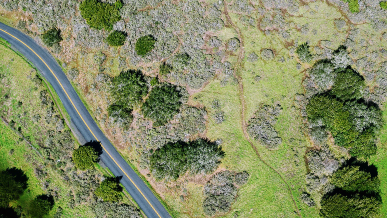
The Bachelor of Science degree in Geography prepares students for a variety of interdisciplinary career fields. Geography is the study of the earth’s places, peoples, environments and their interrelationships from both the physical and social science perspectives. Geographers use many different scientific tools to study the relationships between earth’s systems including geospatial technology and are employed in public agencies, local governments, federal offices, technology sectors, business planning, and careers related to spatial planning.
Credits to Completion
120
The Associates Degree in Physical Science provides a knowledge base for students considering going further in the sciences with a Bachelors degree in Geology, Chemistry, Physics, or Environmental Science and Management. It can also be achieved as a stepping stone on the way to completing a Bachelors Degree or in conjunction with a certificate program.

The Certificate of Proficiency in Geographic Information Systems (GIS) provides students with a focused program of study in the fundamentals required to succeed in a wide range of careers in geospatial science.
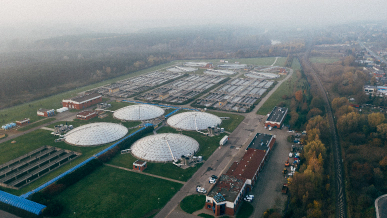
The Certificate of Completion in Water and Wastewater Operations provides students with a focused program of study in the fundamentals required to succeed in a wide range of careers in water and wastewater treatment.
Credits to Completion
30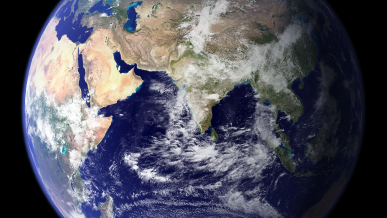
The Minor in Earth Science can be combined with other college-wide Bachelor degrees. The minor provides students with a broad academic knowledge of foundational and scientific principles in this field of study. Following are the key knowledge, skill, and ability goals of this degree program:
Credits to Completion
22
Environmental science is the study of the Earth’s surface, including its water and atmosphere, with a particular focus on their relationship to humans and other living things. Environmental science applies chemistry, physics, mathematics, and biology to answer questions about the Earth and its interrelationships with living things. Environmental management focuses on the maintenance of environmental resources, for example water resources. Environmental scientists may conduct studies in the field, in the laboratory using advanced analytical equipment, and in the office using specialized computer software. The program is preparation for a variety of career paths, including water monitoring, treatment, and pollution control with local, state, or federal agencies; environmental consulting with private industry; and other careers that draw on a background in the natural sciences, including law, public policy, and public health.
Credits to Completion
21
Environmental Studies explores the complex links between human culture and the natural world. The program challenges students to critically examine both the ecological and social context of environmental issues and the numerous connections between natural and social systems, from local to global scales. It is undeniable that humans have a profound impact on the environment. To have the greatest positive influence, we must seek knowledge of the structure and function of natural systems, as well as an understanding of how culture affects the way we perceive nature.

The Minor in Geography can be combined with other University-wide Bachelors degrees. The minor provides students with a broad introduction to physical, regional, and human geography. The minor may be used to develop interdisciplinary skills and applied skills such as geospatial analysis.
Credits to Completion
20
College of Science
800 W. University ParkwayOrem, UT 84058801-863-8000
For individual phone numbers and email addresses, visit our office directory